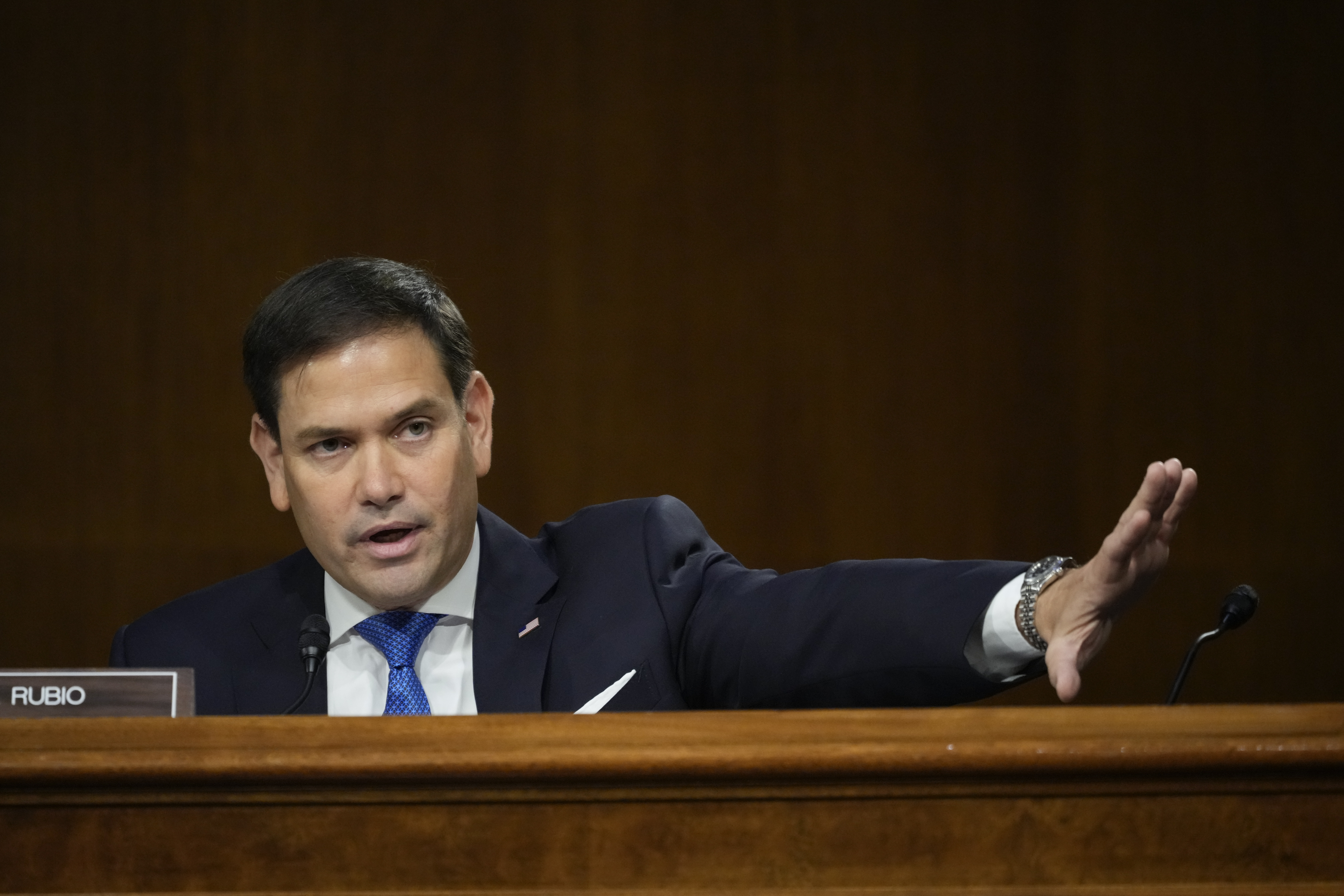Rubio is embracing a federal abortion ban. Florida Dems see an opening.
Sen. Marco Rubio's decision to tie himself to a federal ban comes as he’s also trying to draw attention to Rep. Val Demings' stance on abortion.


TALLAHASSEE, Fla — Republican Florida Sen. Marco Rubio is co-sponsoring a bill that would ban abortions after 15 weeks of pregnancy nationwide, giving critics another opening to attack him ahead of the November election on an issue that has energized Democrats.
Rubio’s move to sign on to Sen. Lindsey Graham’s (R-S.C.) bill is the strongest indication yet that the Republican incumbent appears unconvinced that Rep. Val Demings’ (D-Fla.) consistent pounding of him over the issue is going to harm his bid for a third term. It comes just a week after her campaign launched an ad calling Rubio’s stance on abortion “outrageous.”
“I’ve always been pro-life,” Rubio told reporters in Washington when asked about Graham’s bill. “You need to be asking Democrats what restrictions they support ... Democrats won’t vote for any restriction of any kind on abortion.”
His decision to tie himself to a federal ban comes as he’s also trying to draw attention to Demings' stance on abortion. His reelection campaign launched a new flurry of television ads on Wednesday that contends that Demings supports “abortion up to birth” even though she has said she supports restrictions after the moment of viability.
Democrats nationally have viewed the Supreme Court ruling overturning federal abortion protections enshrined in Roe v. Wade as a catalyst to reignite supporters, a position reinforced by a recent referendum in Kansas where voters in that conservative state kept in place current abortion rights. Some Democrats have also overperformed in a few House special elections since the high court’s decision, signaling to the party that abortion in some races can help mobilize voters.
In Florida, however, Agriculture Commissioner Nikki Fried tried to make it a centerpiece of her Democratic primary for governor by questioning the record of rival Charlie Crist. Crist beat her by nearly 25 points.
A recent poll commissioned by AARP — and done by a team of Democratic and Republican pollsters — found that Rubio had a narrow edge over Demings 49 percent to 47 percent. That lead, however, widened to five points among voters 50 or older, a key demographic in Florida. That same poll also found that 11 percent considered abortion the most important issue in deciding their Senate vote — while 15 percent said it was inflation and rising prices.
Graham’s bill was not universally embraced by Republicans, some of whom have contended abortion restrictions should be left for state legislatures to decide. Rubio himself told a Miami television station just a few weeks ago that “I think the issue is better decided at the state level at this point.”
In a tweet, Rubio also said that “restricting abortions to the first 4 months is more lenient than virtually every country in Europe.”
Earlier this year, Florida enacted a ban on abortions after 15 weeks of pregnancy, but unlike Graham’s bill, it does not provide for exceptions for rape or incest. The legislation, however, would allow states to enact stricter restrictions.
But Rubio’s public support of the federal legislation all but ensures abortion will remain a top issue in Florida’s Senate race.
Demings has defended abortion rights and constantly called out Rubio’s anti-abortion stance during campaign appearances. Democrats ramped up their criticism of Rubio after he said he told CBS Miami that he was in favor of a total ban on all abortions with no exceptions for rape, incest or human trafficking.
“I am in favor of laws that protect human life,” Rubio said during the August interview. “I do not believe that the dignity and the worth of human life is tied to the circumstances of their conception, but I recognize that’s not a majority position.”
Rubio then added he would support laws that included exceptions in order to get them passed. But he also said during that same interview that it was appropriate for states to implement restrictions — not the federal government.
“That’s where it should have always been,” Rubio said. “That’s where it is now and I think that’s where it will be for the foreseeable future. We don’t have the votes, now or anytime in the future.”
Demings on Wednesday slammed Rubio’s decision to support the effort to pass a federal ban and said she would push to codify abortion rights that were in place before the Supreme Court struck them down.
“This is just the next step in Marco Rubio’s fight to ban abortions with no exceptions for victims of rape, incest, and sexual abuse,” Demings said in a statement. “As a 27-year law enforcement officer who investigated cases of rape and incest, I’m appalled and disgusted. Rape is a crime, incest is a crime, abortion is not.”
Her campaign also snapped back at Rubio’s ad. Christian Slater, a spokesperson for Demings, called it a “repeatedly debunked lie” designed to “distract from his endorsement on extremist abortion bans.”
The Rubio campaign has defended the ad by pointing to Demings voting in favor of a House bill that would codify Roe v. Wade. The latest version of that bill says that states can limit abortions after viability, but a health care provider can proceed if the pregnancy would “pose a risk to the pregnant patient’s life or health.”












